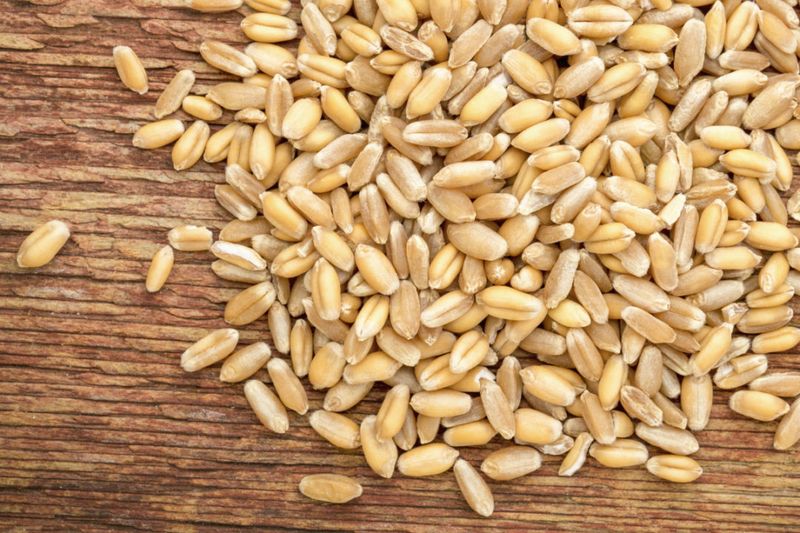Syria’s wheat war: drought fuels food crisis for 16 million

Rival Syrian and Kurdish producers are scrambling for shrinking wheat harvests as the worst drought in decades follows a devastating war, pushing more than 16 million people toward food insecurity.
“The country has not seen such bad climate conditions in 60 years,” said Haya Abu Assaf, assistant to the United Nations Food and Agriculture Organization (FAO) representative in Syria.
Syria’s water levels have seen “a very significant drop compared to previous years, which is very worrying”, Abu Assaf told AFP, as a relatively short winter rainy season and decreased rainfall take their toll.
“A gap of between 2.5 to 2.7 million tonnes in the wheat crop is expected, meaning that the wheat quantity will not be sufficient to meet local needs,” Abu Assaf said, putting “around 16.3 million people at risk of food insecurity in Syria this year”.
Before the civil war erupted in 2011, Syria was self-sufficient in wheat, producing an average of 4.1 million tonnes annually.
Nearly 14 years of conflict have since crippled production and devastated the economy.
The FAO estimates that harsh weather has impacted nearly 2.5 million hectares of wheat-growing land.
“Around 75 percent of the cultivated areas” have been affected, as well as “natural pastures for livestock production”, said Abu Assaf.
To bridge the wheat gap, imports would be essential in a country where around 90 percent of the population lives in poverty.
Before his ouster in an Islamist-led offensive in December, Syria’s longtime ruler Bashar al-Assad used to rely on ally Russia for wheat.
In April, new authorities reported the first wheat shipment since his removal arrived in Latakia port, with more Russian shipments following.
Iraq also donated more than 220,000 tonnes of wheat to Syria.
During the war, Damascus competed with the semi-autonomous Kurdish administration in the northeast to buy wheat from farmers across fertile lands.
Last year, Assad’s government priced wheat at $350 per tonne, and the Kurds at $310.
After Assad’s ouster, Damascus and the Kurds agreed in March to integrate Kurdish-led institutions into the new Syrian state, with negotiations ongoing on implementation.
Damascus set wheat prices this month at between $290 and $320 per tonne, depending on the quality, plus a $130 bonus.
The Kurdish-led administration offered $420 per tonne including a $70 bonus.
Damascus’ agriculture ministry expects a harvest of 300,000 to 350,000 tonnes in government-controlled areas this year.
Hassan Othman, director of the Syrian Grain Establishment, acknowledged Syria was not self-sufficient, in comments on state television.
But he said authorities were working “to ensure food security by importing wheat from abroad and milling it in our mills”.
For almost 30 years of expertise in the agri markets, UkrAgroConsult has accumulated an extensive database, which became the basis of the platform AgriSupp.
It is a multi-functional online platform with market intelligence for grains and oilseeds that enables to get access to daily operational information on the Black Sea & Danube markets, analytical reports, historical data.
You are welcome to get a 7-day free demo access!!!
Read also
Abbey Commodities – General Partner of BLACK SEA GRAIN.KYIV-2026
Black Sea & Danube Barley Market at a Turning Point: Demand Pressure and Regi...
US Supreme Court rules Trump’s emergency duties illegal
Mercosur: Protective measures for European agriculture
US makes concessions on pulses in new trade deal with India
Write to us
Our manager will contact you soon



